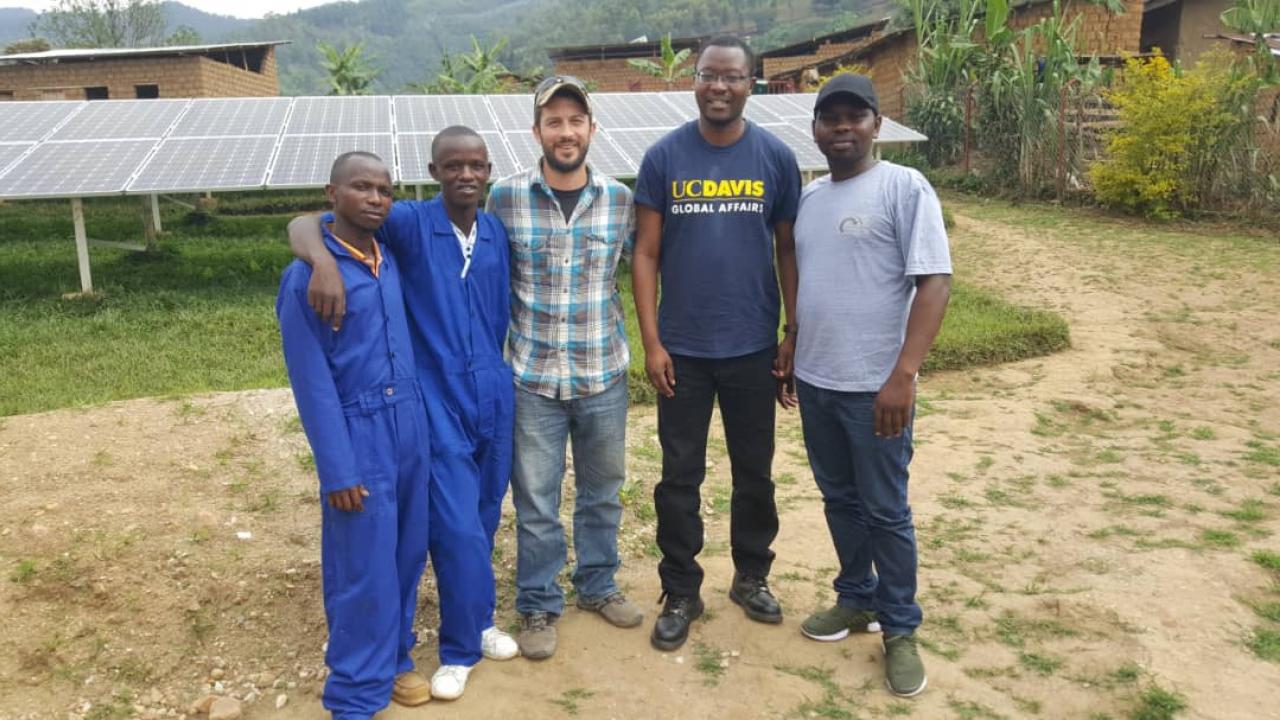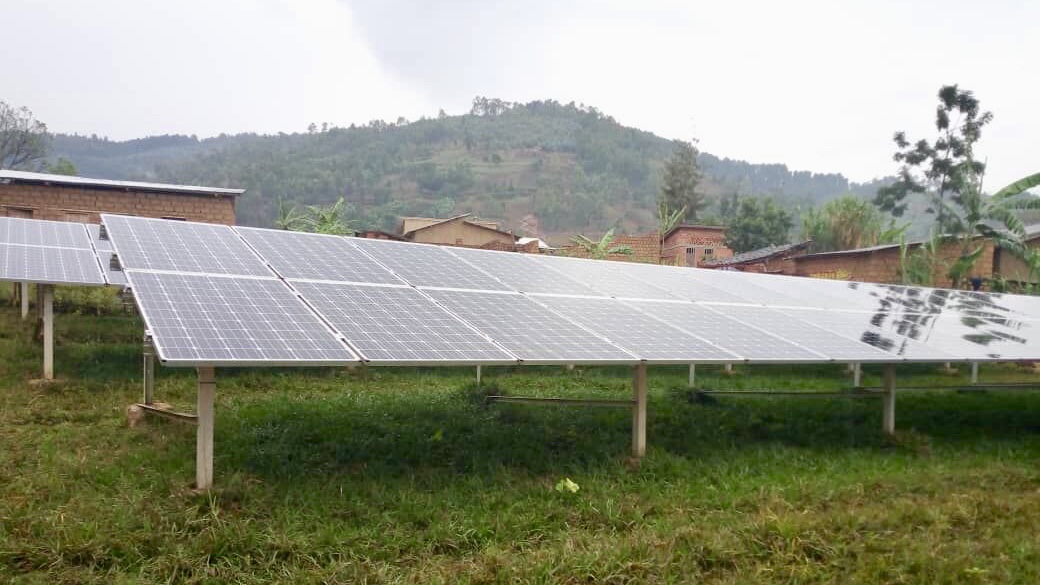
Mandela Washington Fellowship Spurs Continued Collaborations in Africa
Since 2016, UC Davis Global Affairs has been providing recipients of the Mandela Washington Fellowship for Young African Leaders with six weeks of cultural exchange, community engagement and academic research opportunities.
International collaborations are often the result of these young Sub-Saharan leaders connecting with faculty and students through a packed schedule of on-campus academic sessions, trainings, community events, and networking opportunities.
Making Science Work for People
In 2017, one such partnership was forged between Nicholas Bowden, an energy systems Ph.D. student at UC Davis and Mandela Washington Fellowship curriculum developer; and Janvier Kabananiye, a 2017–18 UC Davis Mandela Fellow and senior engineer in Rwanda’s energy development sector.
“Janvier was one of the individuals I just instantly connected with,” recalls Bowden. “On the last day of fellowship, I was driving him to the airport at around two in the morning, and he just turns my way and invites me to Rwanda.”
When the Mandela Washington Fellowship Reciprocal Exchange opportunity came about through the U.S. Department of State and IREX, the pair decided to put together an application and collaborate. Thanks to Professor Bryan Jenkins’ course “Engineering in Environmental and Biological Systems,” Bowden was able to develop data processing software to secure their application acceptance and the Reciprocal Exchange funding.
“What we’re interested in is solar radiance,” says Bowden.
Because the Rwanda Meteorological Agency owns over 20 weather stations at different locations across the country, the stations have been able to collect measurements like precipitation, temperature and pressure—and provide access to the data via the web.
“That was the work we initially did, leveraging these assets in Rwanda that aren’t being fully utilized due to resource constraints,” says Bowden. “Because well over half the population of Rwanda has no electricity, we are trying to make the case that these assets provide applicable data.”
To continue the work begun by the Mandela Washington Fellowship and the Reciprocal Exchange, Bowden and Kabananiye decided to apply for a Blum Center for Developing Economies Grant through Global Affairs.
“When the Blum Center grant came along, we were able to see beyond simply processing the data and envision a direct application of the data aimed at alleviating poverty,” says Bowden.
This is where the expertise of Kabananiye came in. With more than six years of experience in Rwanda’s energy development sector, his work with the national power company has him on the ground, running the implementation of the country’s rural electrification plan and regional power grid interconnection.

“Janvier is a fantastic partner and has been instrumental in providing me with information and access for developing outputs that are useful to him and his community,” says Bowden.
“He has also been supporting my growth as a Ph.D. student via these opportunities to engage in research work and real work that helps the people of Rwanda. That has given me the motivation to keep doing what I’m doing, which is trying to make science work for people.”
E-volution in Motion
Kurt Kornbluth, an assistant adjunct professor in the Department of Biological and Agricultural Engineering at UC Davis, is a second Reciprocal Exchange grant recipient. He traveled to Côte d’Ivoire to work with 2017-18 UC Davis Mandela Fellow Jean-Phillippe Seya in launching the energy services company E-volution.
Kornbluth and Seya are addressing energy efficiency initiatives and helping prioritize the private sector for energy efficiency projects. According to the duo, the growth in energy efficiency is occurring too slowly to meet the energy demands of the public.
“E-volution—in collaboration with Power Africa and the Polytechnic Institute for Engineering—would like to develop an energy services company to begin energy efficiency project development for different communities in Côte d’Ivoire,” says Kornbluth.
The company hopes to inspire the development of an energy efficiency department or commission in the state government to centralize project efforts and allow for new policies to support energy efficiency expansion, which lies at the heart of Kornbluth and Seya’s Reciprocal Exchange.
Lasting Impressions
For Bowden, being part of the UC Davis Mandela Washington Fellowship and the Reciprocal Exchange has enlightened him in a way that’s not easy to describe or quantify.
“To work with people from parts of the world you’ve never been to has helped broaden my perspective on what the world is like and my place in it,” he says. “This has given me a greater appreciation for what it means to be a human.”
About Global Affairs at UC Davis
Global Affairs brings the world to UC Davis, welcoming more than 10,000 international students, scholars and leaders, and hosting programs that inspire global curiosity, understanding and engagement. Compelled by the valuable outcomes of thinking globally, we make transformative opportunities a reality by supporting the thousands of students and faculty studying and researching internationally—and by facilitating collaborations that tackle the world's most pressing problems through more than 150 international partnerships.
Putting our vision of a UC Davis community that engages, thrives, and leads in this interconnected world into action, Global Affairs is now in pursuit of an ambitious goal: Global Education for All.